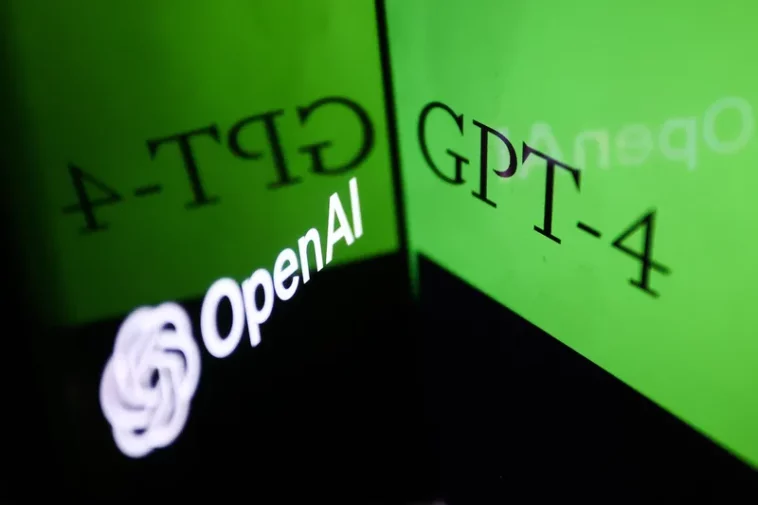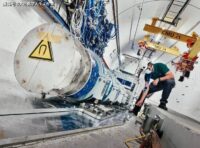Short term (1-5 years):
Productivity and efficiency: LLMs can greatly increase productivity and efficiency by automating routine tasks, providing real-time language translation, and assisting with research and problem solving.
Personal assistants: Advanced virtual assistants powered by LLMs can provide personalized services such as managing schedules, answering inquiries and providing advice, etc.
Creative Industries: The LLM can support the production of content, including writing articles, creating music and artwork, enabling new creative applications and platforms.
Education and training: LLMs can be integrated into educational tools to provide a personalized learning experience and enhance the accessibility of educational resources.
Job replacement: The automation of certain tasks may lead to the replacement of workers in certain industries by machines, making it necessary to reskill affected workers.
Medium term (5-20 years):
AI-driven innovations: LLMs are likely to be at the heart of many AI-driven innovations, driving advanced technologies in areas such as healthcare, transportation, and energy.
Regulatory and ethical concerns: As LLMs become more pervasive, their potential for misuse and bias may raise regulatory and ethical concerns, requiring guidelines and policies to ensure responsible AI deployment.
Economic Inequality: LLMs may exacerbate economic inequality by increasing the divide between those who can access and benefit from AI technologies and those who cannot.
Cooperation between humans and AI: As LLMs become more capable, there may be increased focus on developing human-AI cooperative systems that combine the strengths of both human and AI agents.
Long term (20+ years):
AI is everywhere: LLMs are likely to become an integral part of everyday life, embedded in a variety of devices and systems, and affect every aspect of human decision-making.
Ongoing job displacement and transformation: Widespread adoption of LLMs is likely to lead to further job displacement and transformation, potentially affecting more industries and skill levels.
Artificial General Intelligence (AGI): The development of LLMs may contribute to the eventual emergence of AGI, which may have profound impacts on society, including large-scale economic growth and potential risks.
Ethical and philosophical questions: As LLMs become more advanced, they may raise complex ethical and philosophical questions concerning the nature of consciousness, intelligence, and the relationship between humans and artificial intelligence.
The actual impact of LLMs will depend on a variety of factors, including technological advances, resource availability, and societal responses to their deployment. However, their impact is expected to be substantial and transformative across multiple sectors and time horizons.
Which migrant workers will be replaced in the short term?
In the short term (1-5 years), job replacement by LLMs and related AI technologies is likely to focus on tasks and roles involving repetitive, routine, or easily automated tasks. Some areas that may be affected include:
Customer service: LLMs can be used to create chatbots and virtual assistants that can handle customer inquiries, manage complaints, and provide support, potentially reducing the need for human customer service.
Data entry and analysis: LLMs can efficiently process, analyze, and organize large volumes of data, automating tasks that need to be performed by data entry personnel and analysts.
Content creation: LLMs can produce articles, marketing copy, and other types of written content, which can impact the job market for writers, journalists, and content creators.
Translation and transcription: LLMs can provide real-time translation and transcription services, which may revolutionize work in the translation and transcription industry.
Personal assistants and administration: Virtual assistants provided by LLMs can handle tasks such as managing calendars, organizing files, and conducting research, which could lead to a reduction in the need for human personal assistants and administrative staff.
It’s worth noting that while there may be job displacement in these fields, LLMs and AI technologies can also create new job opportunities, such as roles focused on AI development, maintenance, and oversight, whose demand may increase.
Additionally, many existing jobs may also evolve to incorporate AI tools, creating opportunities for workers to upskill and adapt to changing circumstances.
To minimize the negative impact of job substitution, it is crucial to invest in education, retraining, etc., which can help migrant workers affected by LLMs transition to new roles or industries.
Which migrant workers will be replaced in the medium term?
In the medium term (5-20 years), job displacement by LLMs and related AI technologies is expected to go beyond routine and repetitive tasks and may affect a wider range of industries and skill levels. Some areas that may be affected include:
Advanced analysis and decision-making: As AI becomes more capable of handling complex analysis and decision-making processes, workers in fields such as finance, insurance and management may be affected.
Healthcare: LLMs can assist in diagnosing diseases, analyzing medical images, and recommending treatments, potentially reducing the need for certain medical professionals such as radiologists and pathologists.
Legal: Legal research tools and contract analysis systems powered by AI could impact legal industry jobs, especially for paralegals and junior attorneys who perform document review and research tasks.
Education: As personalized learning systems and automated grading tools become more common, AI-enhanced educational tools and platforms could lead to a reduction in the need for educators in some settings.
Creative Industries: As algorithms become better at generating high-quality creative work, AI-generated content could impact jobs in creative fields such as advertising, graphic design, music and film production. Manufacturing and logistics: Manufacturing and logistics are increasingly adopting artificial intelligence-driven robotics and automation systems.
Sales and Marketing: LLMs and AI systems may automate various aspects of sales and marketing, including lead generation, customer targeting and content creation.
It is worth noting that while some jobs may be displaced, LLMs and artificial intelligence technologies will also create new job opportunities during this period, urging workers to learn more skills. The number of people working in roles related to AI development, ethics, and policy is expected to grow significantly, and many jobs will be inseparable from AI tools and systems.
To address these changes, governments, businesses, and educational institutions should prioritize investments in workforce development and reskilling to help migrant workers adapt to the changing work environment. Furthermore, fostering innovation in AI-related industries and fostering the responsible and ethical development of AI technologies is critical to mitigating potential negative impacts.
In the long run, which migrant workers will be replaced?
In the longer term (20+ years), job displacement by LLMs and related AI technologies is likely to become more widespread, affecting different industries and skill levels. It is difficult to predict the exact trajectory of AI development and its societal impact, but some potential job replacement areas include:
Advanced decision-making: AI systems may become capable of handling advanced strategic and executive decision-making, potentially affecting management and executive roles across industries.
Research and development: AI-driven research tools could revolutionize fields such as medicine, materials science, and engineering, potentially reducing the need for human researchers in some areas.
Human-AI collaboration: As AI systems become more advanced, the lines between human and AI roles are likely to blur, leading to the incorporation of AI into a wide range of jobs, which may change or replace some traditional roles.
High-skilled occupations: AI technologies are likely to infiltrate high-skilled industries such as medicine, law, and finance, automating tasks that were once considered the exclusive domain of human experts.
Entertainment and media: Advanced AI-generated content could impact jobs in areas such as journalism, filmmaking and game development, as algorithms become better at producing high-quality content.
Personal services: Robots and devices powered by AI may be able to perform personal services such as cooking, cleaning and aged care.
While job displacement is a potential negative consequence of widespread AI adoption, it is also important to consider the potential for job creation and transformation. New industries and roles may emerge that we cannot yet foresee, and many existing jobs may evolve to focus on uniquely human skills and attributes, such as creativity, empathy, and complex problem-solving.
To prepare for the long-term impact of artificial intelligence on the job market, investments must be made in education, retraining, and helping workers adapt to the changing environment. In addition, policymakers, businesses, and educational institutions should prioritize promoting innovation in AI-related industries, fostering the responsible and ethical development of AI technologies, and developing social safety nets to help migrant workers make a smooth transition




GIPHY App Key not set. Please check settings